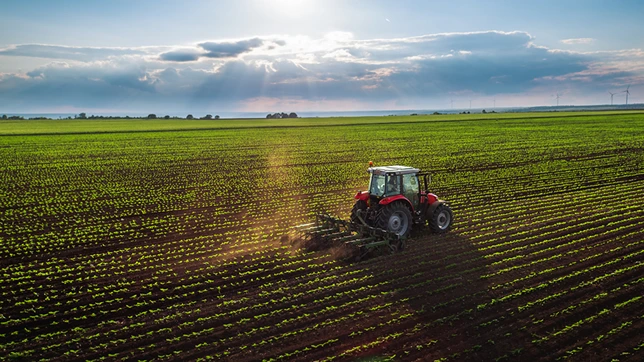Many people would be surprised to know that according to government figures for 2023, the utilised agricultural area in the UK was 17 million hectares, and accounts for 70% of the total area of the UK. Of this area, cereal crops cover 3.1 million hectares, wheat 1.7 million, and barley 1.1 million. There were just under 9.6 million cattle, 4.7 million pigs, 32 million sheep and 178 million poultry.
Agriculture is big business and it’s 24 hours a day, 7 days a week work which isn’t so much a job as a lifestyle, but farmers have to be businesspeople too. The financial burden of running a profitable agricultural enterprise is a heavy one. When a farmer has been up at dawn to plough and plant and has had a long and physically demanding day, the last thing they want is to sit down and go over the figures.
We’ve put together five top bookkeeping tips for agricultural employers which will hopefully lighten the load.

Keep abreast of HMRC statutory provisions for farmers
These can really benefit the balance sheet. For example, adopting the herd basis of accounting for tax purposes can make a big difference. This is a special method of profit and loss calculation which enables farm animals to be designated as a capital asset on the annual accounts instead of trading stock. The advantage is that any profit or loss made on the herd, or over 20% of the animals, will not be taxed, although if the herd is then partly or fully built up within five years, any profit would be taxable. Replacement animals are not taxed but if the herd increases in size, then the value of these animals is added to the herd’s capital value.
Although the purchase of an animal is not tax deductible, the ongoing costs of its maintenance are. In addition, some animals are excluded from the herd basis, such as cattle kept specifically for eventual slaughter.
Ensure workers are paid the correct wages and benefits
HMRC states that agricultural workers in England must be paid at least the national minimum wage. Even if they are paid per task completed, such as a specific amount per box of vegetables picked, the minimum wage must be paid. The Agricultural Minimum Wage depends on the worker’s job grade and category, ranging from Grade 1 which covers simple tasks like harvesting and packing, to Grade 6 which covers management responsibility for a farm. Additional payments apply for on-call allowance, dog allowance if a dog is used for the job such as a sheep dog, or night work such as harvesting into the late evening if the weather demands it. Finally, make sure each worker is classified correctly as employed, which could cover full time workers, or self-employed, such as seasonal fruit pickers.
Plan ahead for major investments
With a new top of the range combine harvester costing up to £750,000, some investments have to be planned well in advance. Any farm machine will be expensive, as will other projects such as the installation of an irrigation system, construction of a new barn or purchase of additional land. There are some generous tax relief schemes for UK farmers, such as Annual Investment Allowance (AIA) and Agricultural Property Relief (APR) which can make all the difference to a farm budget. For example, the AIA currently provides a super-deduction of 130% for a first-year capital allowance for qualifying machinery and plant assets. However, this is due to be reviewed at the end of March 2024.
Understand how VAT applies to agriculture
VAT is complex enough, but for farmers it can often cause a headache, particularly when it comes to zero rates and exempt rates. For example, farm produce such as wheat, barley, milk, meat and eggs is zero-rated for VAT, but even though it isn’t charged on them, farmers are still able to reclaim VAT on the cost of their production. Reading up on VAT will prevent an unpleasant shock due to unintentional non-compliance with HMRC rules.
Set a budget and revisit it regularly
More than any other enterprise, farming is subject to unexpected issues. An annual summary can be turned upside down in a drought requiring extensive expenditure on irrigation, crop loss due to flooding, or a major disaster such as the 2001 foot-and-mouth disease outbreak. Farmers should be re-examining and updating budgets on a seasonal, if not monthly basis.
At AMR Bookkeeping Solutions we work with many people across all different industries. Our expertise can help make a genuine difference to your cash flow and profitability; why not contact us on 01892 559480 or check out the rest of our website, and find out how our friendly team can make your farming life easier.









